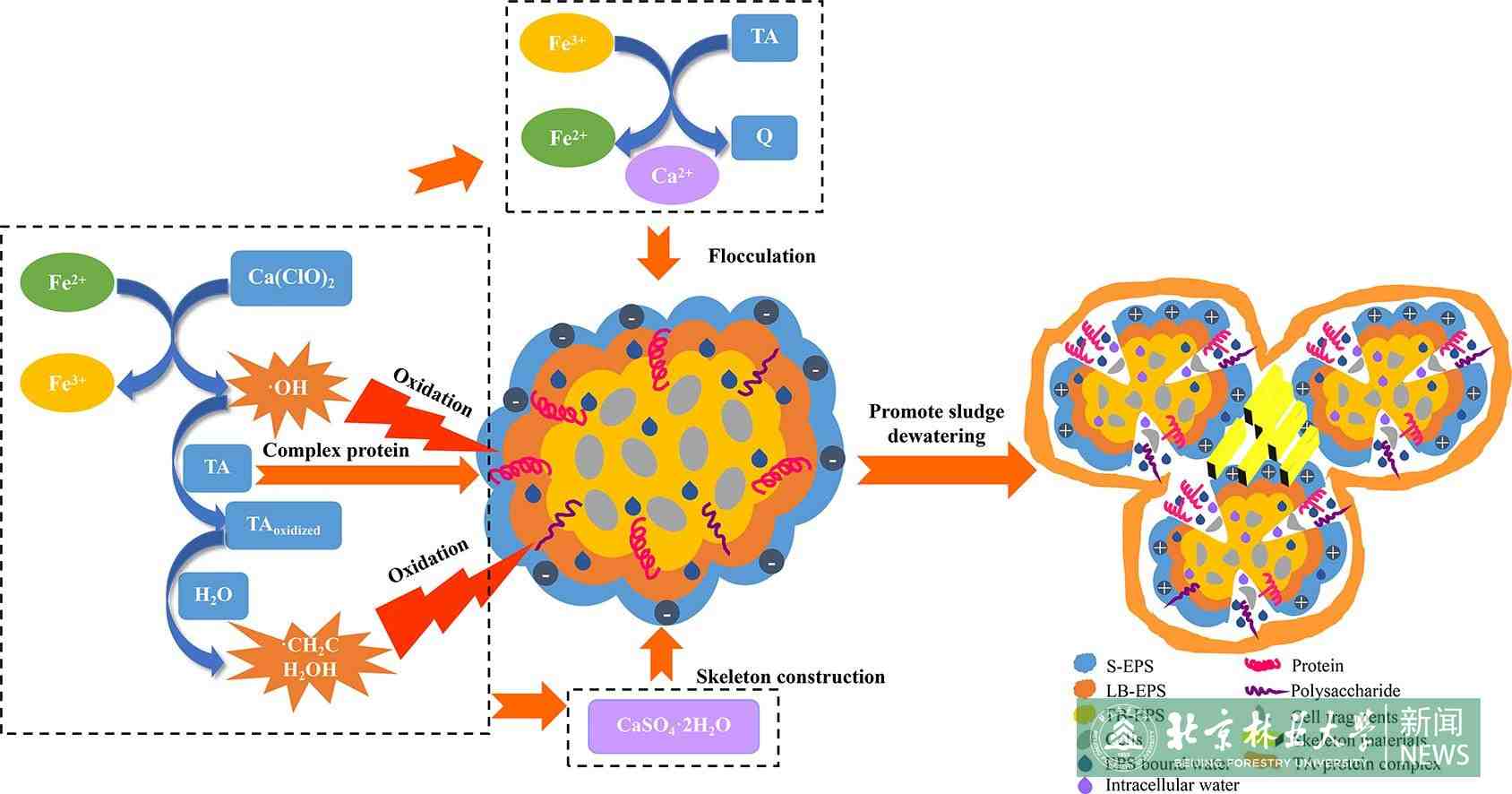Latest news
The research team led by Professor Zhang Panyue from the School of Environmental Science and Engineering recently published a paper in the Chemical Engineering Journal (IF=13.3), a leading journal in environmental science and ecology. The study, titled “Ferrous Activated Calcium Hypochlorite Process Combined with Tannic Acid Conditioning for Improving Dewaterability of Waste Activated Sludge,” explores innovative methods to enhance sludge dewaterability.

The high water content of sewage sludge presents a significant challenge for its subsequent treatment. With activation of hypochlorite treatment hydrophilic protein in sludge could not be effectively degraded which limits the performance of sludge dewatering, meanwhile, excessive radicals could be consumed. To solve this issue, in this study a novel Fe2+/Ca(ClO)2/tannic acid (TA) process was proposed for the first time, aiming at enhancing the dewaterability of waste activated sludge (WAS). Treatment with 1.2 mmol/g total solids (TS) of Ca(ClO)2, 1.0 mmol/g TS of Fe2+ and 0.15 mmol/g TS of TA resulted in the reduction of 66.58 %, 88.31 % and 9.75 % in capillary suction time (CST), specific resistance to filtration (SRF) and water content (Wc) of sludge cake, respectively. Mechanistic investigations revealed that the ·OH and ·CH2CH2OH generated within the Fe2+/Ca(ClO)2/TA system facilitated the decomposition of extracellular polymeric substances (EPS) and sludge cells, leading to the release of bound water as free water. The value of α-helix/(β-sheet + random coil) with Fe2+/Ca(ClO)2/TA conditioning decreased from 50.43 % to 38.72 %. Furthermore, the formation of multivalent ions, such as Fe3+ and Ca2+, along with TA, promoted re-coagulation, resulting in an increase in sludge particle size and enhanced flocculation. Additionally, TA effectively complexed hydrophilic proteins, facilitating the interaction between calcium and sulfate ions to form additional gypsum material as skeleton in sludge cake, which led to improved permeability and compressibility of the sludge cake. This study provides a new approach for efficient improvement in sludge dewaterability.
Zhang Lian, a master's graduate from BFU, is the first author of the paper. Associate Professor Fang Wei and Professor Zhang Panyue serve as corresponding authors. BFU is the affiliation of the first author.
The authors acknowledge the Fundamental Research Funds for the Central Universities (BLX202150) and Beijing Municipal Education Commission through the Innovative Transdisciplinary Program "Ecological Restoration Engineering" for funding this research.
Paper link: https://doi.org/10.1016/j.cej.2024.158275
Written by Zhang Lian, Zhang Panyue
Translated and edited by Song He
Reviewed by Yuyangyang












